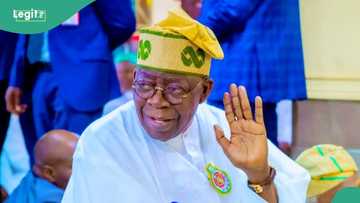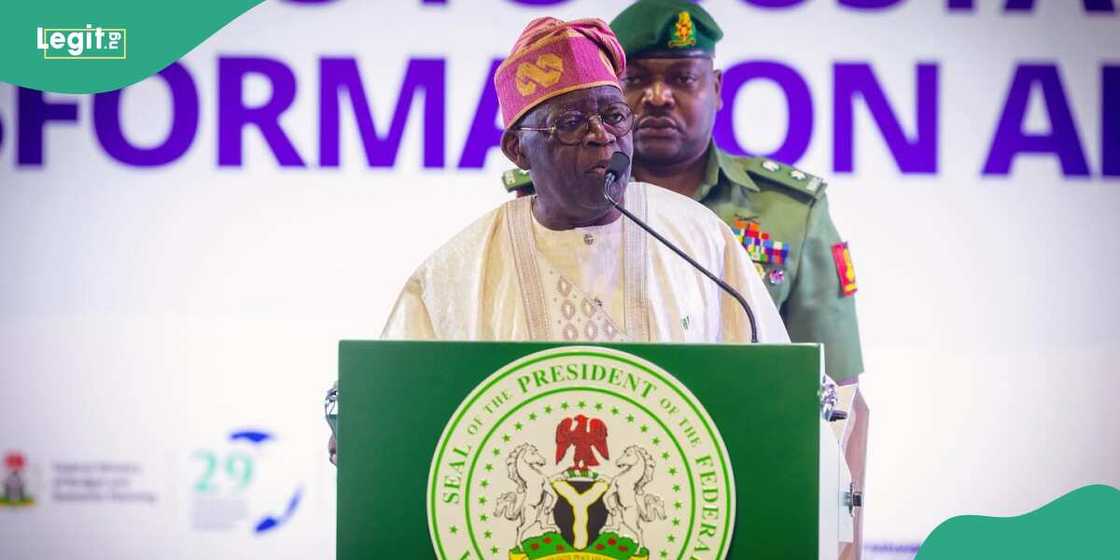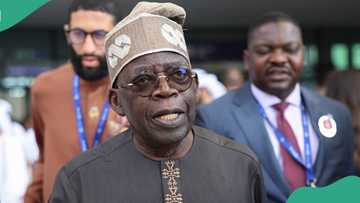Tinubu at 72: 3 Controversial Economic Policies Enacted by Jagaban
- President Bola Tinubu's policies have created a divide among his critics, especially in the area of Nigeria's economy
- On one hand, some feel that he should do much better being a shrewd businessman that is he known to be
- On the other hand, another section of commentators feels Nigeria is only going through teething pains under a new administration
PAY ATTENTION: The 2024 Business Leaders Awards Present Entrepreneurs that Change Nigeria for the Better. Check out their Stories!
Many Nigerians are yet unsure where President Asiwaju Bola Ahmed’s administration is heading, especially with the country’s economy. Some citizens voted for him in the stiffly contested presidential poll in 2023 with the hope that, as the successful businessman that he is, President Tinubu will use his magic wand to resuscitate the sector and possibly return it to its former, glorious days.
But the current, nationwide hardship seems to have blurred the line separating Tinubu and his predecessor, Muhammadu Buhari, in terms of the extent to which their economic policies have improved the standard of living for the common Nigerian on the street.

Read also
Tinubu sends crucial message to Christians ahead of Easter celebration: “We’ll triumph over challenges”

Source: Facebook
Thus, as Tinubu celebrates his 72nd birthday and his administration nears one year since its inception on May 29, 2023, it is key, at least, for the records, to have a glance at some of its milestone policies in the sector.
Among these policies are the removal of fuel subsidies, a 50% discount on land transportation in December of 2023 and the floating of the naira.
Removal of Fuel Subsidy
In the middle of his inaugural speech on Monday, May 29, 2023, Tinubu announced what came across as a shocker to many Nigerians: the end of the fuel subsidy regime.
For quite a lot of citizens, the decision was unreasonable and capable of plunging citizens deeper into pain. Some other persons feel the policy came too soon, considering the state of the country economically.
However, those in favour of this resolve hold on to the assurance that its gains will come in the near future.
50% Discount on Land Travel
In 2023, the Tinubu-led government announced a 50% cut on land transportation across the country.
And even if this discount which appeared as a Yuletide gift from the presidency to Nigerians was valid only between December 21, 2023 to January 4, 2024, it was indeed a welcome relief during the festive season.
Floating of the Naira
Among the most controversial and landmark economic policies made by Tinubu was the floating of the naira against the dollar at the foreign exchange market.
This policy was hinged on the anticipation that it would reduce the discrepancy existing between the official and parallel markets. Resultantly, the naira was devalued by close to 40% against the dollar from June 2023, when it was first announced.

Read also
Killing of 17 soldiers: Police give fresh update on wanted Delta monarch who surrendered himself
However, the policy was decried by many local economists who noted that it had a negative impact on inflation and as such, a post by Nairametrics in December 2023 claimed that due to this attempt by the administration, Nigerians experienced the most expensive Christmas the same year.
Yet, as it is said, good things do not come easy and certain painful sacrifices must be made for the common and greater good. The policies were introduced in the hope of benefitting the masses soonest or that is what citizens believe. Be the case what it may, Nigerians can only wait and while doing so, hope that they will thank Tinubu later when his economic policies eventually yield their intended dividends.
Read more on Tinubu's policies
- Year in Review: Fuel Subsidy Removal, 6 Other Major Actions Tinubu Took in 2023
- Three Fuel Subsidy Removal Palliatives Tinubu Must Implement in Nigeria
- “With Subsidy, No Light”: Shehu Sani Questions Tinubu’s Decision To Remove Electricity Subsidy

Read also
“DSS should lead probe”: Urhobo leader reveals 1 issue responsible for murder of 17 soldiers in Delta
Actual Reason I Removed Subsidy on Petrol, Tinubu Opens Up
Tinubu, on Tuesday, February 27, explained that his decision to remove the subsidy on petrol was a challenging one.
He, however, said it was necessary to ensure a transparent and accountable energy sector.
Tinubu, who spoke at the opening of the 2024 Nigeria International Energy Summit (NIES) in Abuja, acknowledged that the decision had led to hardship, especially amongst low-income earners.
PAY ATTENTION: Stay Informed and follow us on Google News!
Source: Legit.ng



